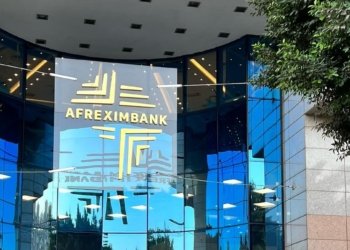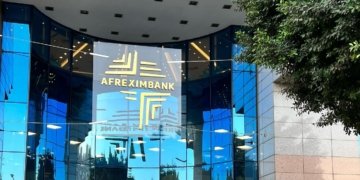TRIPOLI, Libya (BG) — Libya’s National Oil Corporation (NOC) and several international energy companies, including TotalEnergies, Eni, OMV, Repsol, and Nabors, outlined major exploration projects and strategies to expand oil and gas production in the country during the Libya Energy & Economic Summit 2025.
The two-day summit, held from Jan. 18 to Jan. 19, brought together key players in the energy industry to discuss Libya’s vast untapped potential.
According to a statement released by Energy Capital & Power on Sunday, the summit highlighted Libya’s strategic importance as a top destination for international energy investments.
The discussions emphasized the opportunities and challenges in reviving Libya’s energy sector, which holds a significant share of Africa’s oil and gas reserves.
Unlocking Libya’s Energy Potential
During the summit, international oil companies detailed their exploration milestones and future plans for Libya.
TotalEnergies announced promising results from its recent onshore exploration project and outlined opportunities in the Sirte and Murzuq basins.
Julien Pouget, Senior Vice President for the Middle East and North Africa at TotalEnergies, described Libya as “largely untapped,” noting that it holds 40% of Africa’s oil reserves.
Pouget highlighted plans for further exploration in the Waha and Sharara fields and confirmed that the company expects results from its latest project “next week.”
Eni also unveiled major investment plans to transform Libya into a hub for energy production.
“We are launching three exploration plays – shallow, deepwater, and ultra-deep offshore,” said Luca Vignati, Upstream Director at Eni. Vignati described Libya as a unique energy destination with unmatched potential.
He also emphasized Eni’s investments in gas infrastructure, including over $10 billion for the Greenstream gas pipeline and a CO2 capture and storage facility in Mellitah.
Repsol reaffirmed its long-standing commitment to Libya’s energy sector, focusing on achieving significant production milestones while overcoming industry challenges.
Francisco Gea, Executive Managing Director of Exploration & Production at Repsol, highlighted Libya’s oil reserves, estimated at 48 billion barrels of discovered but unexploited oil, with total potential reaching 90 billion barrels, especially offshore.
Gea noted that production has already reached 340,000 barrels per day, adding, “The two-million-barrel target is within reach.”
The Role of Innovation and Collaboration
Speakers at the summit underscored the need for innovation and international collaboration to maximize production. “By deploying cutting-edge solutions, Nabors can enhance efficiency, reduce costs, and ensure safer operations,” said Travis Purvis, Senior Vice President of Global Drilling Operations at Nabors.
Libya’s energy experts highlighted the country’s immense potential. Bashir Garea, Technical Advisor to the Chairman of the NOC, noted Libya’s reserves of 122 trillion cubic feet of undeveloped natural gas.
He called for new investments and advanced technologies to unlock these resources, remarkably revitalizing ageing oil fields.
Hisham Najah, General Manager of the NOC’s Investment & Owners Committees Department, emphasized the importance of strengthening infrastructure to boost production and efficiency.
“Our strategy spans the entire value chain,” Najah said, pointing to the need for sustainable and integrated solutions.
A New Energy Era for Libya
NJ Ayuk, Executive Chairman of the African Energy Chamber and moderator of the summit, described Libya as being on the “cusp of a new energy era.”
He encouraged bold investments and strategic partnerships to unlock the country’s energy potential.
The summit concluded with optimism about Libya’s ability to become a global leader in energy production.
With an estimated 90 billion barrels of oil and 122 trillion cubic feet of gas yet to be fully developed, Libya’s energy sector is poised for significant growth.
As highlighted by Energy Capital & Power’s statement, the collaboration between the NOC and major international oil companies signals renewed confidence in Libya’s future as a key energy player on the global stage.
Significant Growth Potential
The oil and gas sector drives the Libyan economy and remains undiversified, with a large public sector.
According to the World Bank, in 2023, the oil and gas sector represented 60% of GDP, 94% of exports, and 97% of government revenues.
The private sector remains underdeveloped but has significant growth potential and currently employs nearly 14% of the workforce.
While Libya is an upper middle-income country, its development indicators and institutional capacity do not match its income level.
Years of conflicts and divisions have led to inadequate public investment and infrastructure maintenance despite the growing oil production, coupled with a distortive presence of the state in the economy and a restrained development of the private sector.






























